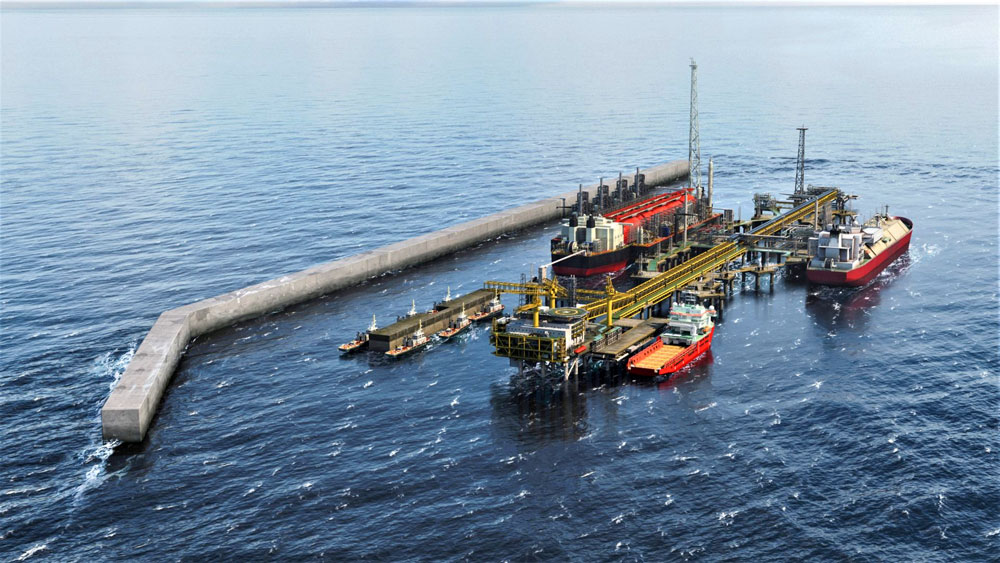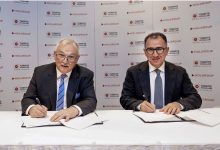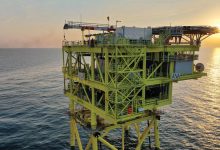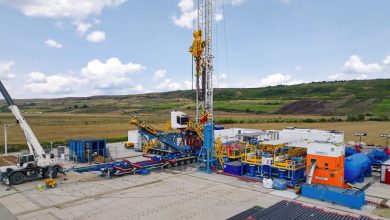BP awards contracts to McDermott and BHGE for GTA natural gas project
McDermott International and Baker Hughes, a GE company, have announced on March 11 that they have been awarded subsea umbilicals, risers and flowlines (SURF) and subsea production system (SPS) equipment contracts by BP for the Greater Tortue Ahmeyim natural gas project, located offshore Mauritania and Senegal. BP, BHGE and McDermott are working together to realize efficiencies, synergies and enhanced delivery times.
McDermott was awarded a substantial (between USD 500 million to USD 750 million) engineering, procurement, construction and installation (EPCI) SURF contract.
McDermott plans to use its upgraded Amazon vessel, DLV 2000, North Ocean 102 (NO 102) and third-party vessels to support installation scheduled to begin in late 2020. The Amazon modifications are scheduled to be completed before the installation campaign begins and will include a multi-joint (hex) J-Lay system to handle the most challenging ultradeepwater projects as well as the addition of a multi-joint facility, dual pipe loading cranes and additional power generation. McDermott-designed pipeline and riser structures will be fabricated at its yard in Batam, Indonesia.
BHGE is demonstrating the benefits of early-engagement and collaboration – some of the key components of Subsea Connect – as well as bringing its expertise in deepwater, long-offset gas projects. The company will provide five large-bore deepwater horizonal xmas trees (DHXTs), a 6-slot dual bore manifold, a pipeline end manifold, subsea distribution units (SDUs), three subsea isolation valves (SSIVs), diverless connections and subsea production control systems, specifically designed to enable the future integration of additional wells for the first phase of the development.
“This contract marks a number of firsts: our first significant subsea EPCI project in West Africa; the first project using our state of the art pipelay vessel Amazon; and our support of BP’s first entry into Senegal and Mauritania. This project is also of significant importance in support of our aspirations in this region,” said Tareq Kawash, McDermott’s Senior Vice President for Europe, Africa, Russia and Caspian. “Our collaboration with BHGE allows us to offer BP an integrated approach that builds on our proven solutions. We look forward, along with BHGE, to deliver this landmark project to BP with the highest levels of safety and quality.”
“Together with McDermott, we will deliver the best-in-class solution to BP with cost-efficiency and industry-leading safety. These awards demonstrate the value of early-engagement, collaborative partnerships and holistic project planning, which are very much central to our new approach to subsea developments, Subsea Connect,” said Graham Gillies, BHGE’s Vice President, Subsea Production Systems & Services. “This major deepwater gas development is strategically important for Mauritania and Senegal’s domestic and global gas supply, and supports the industry’s drive for a more sustainable, lower carbon future.”
These latest awards follow an initial front-end engineering and design (FEED) phase, awarded in March 2018, during which BHGE and McDermott worked together to define the technology and equipment scope for a four-well development phase. Project management and engineering teams from BP, BHGE and McDermott will remain co-located at McDermott’s London offices for this next phase.
BHGE has also signed an agreement to become a ‘Country Partner’ of Invest in Africa’s (IIA) Senegal chapter, of which BP is a founding member. The IIA helps local suppliers to connect with international oil and gas companies, increasing the opportunities for local businesses to support large-scale projects, and training African suppliers on core business skills and entrepreneurship.
Project details
The initial subsea infrastructure connects the first four of 12 wells consolidated through production pipelines leading to a floating production, storage, and offloading (FPSO) vessel. From here liquids are removed and the export gas is transported via a pipeline to the floating liquid natural gas (FLNG) hub terminal where the gas is liquefied.







